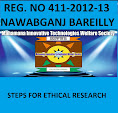Plastic is one of the most popular and useful materials of modern times and it is important that we optimise the lifespan of plastics as much as possible. Worldwide we produce 300 million tonnes of plastic each year and most people are re-using and recycling their plastics.
Many chemicals found in plastics are endocrine disruptors, which can cause an imbalance in hormones, reproductive issues, and even cancer. Also, microplastics can leach harmful chemicals such as bisphenol A (BPA) and phthalates. Both of these types of chemicals are known to interfere with hormones.
Re-using and recycling items as many times as possible can reduce our need to create new plastic.
This means we can:
conserve non-renewable fossil fuels (oil)
reduce the consumption of energy used in the production of new plastic
reduce the amount of solid waste going to landfill
reduce emission of gases like carbon dioxide into the atmosphere.
Plastic recycling is the processing of plastic waste into other products. Recycling can reduce dependence on landfill, conserve resources and protect the environment from plastic pollution and greenhouse gas emissions. Sorting is mainly done automatically with a manual sort to ensure all contaminants have been removed. Once sorted and cleaned, plastic can either be shredded into flakes or melt processed to form pellets before finally being moulded into new products.
Ways to reuse
Donate items that are still in a good, usable condition to charities or charity shops.
Repurpose glass, plastic and cardboard containers to give them another life.
Carry a re-usable shopping bag.
Re-use wrapping paper or gift bags.
Convert old clothing, towels or sheets into cleaning rags/cloths.
According to the OECD, 91 per cent of all plastic used goes unrecycled into nature, oceans, landfill or incineration every year— that’s 320 million tons. By 2060, there will be an additional 30 billion tons. Only 5 billion tons are predicted to be recycled.
The world needs a plan to fix its plastic problem. The United Nations has committed to delivering a legally binding Plastic Treaty by the end of 2024. This month, more than 175 governments will convene in Ottawa for the fourth and penultimate round of negotiations of the Plastic Treaty.
https://ssmitws.wordpress.com/2024/04/03/recycling-of-plastic/


No comments:
Post a Comment